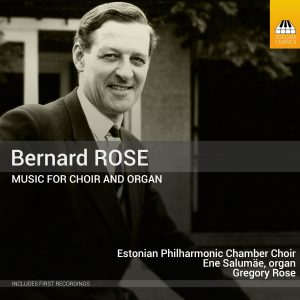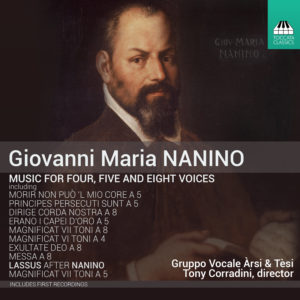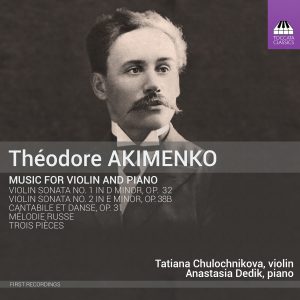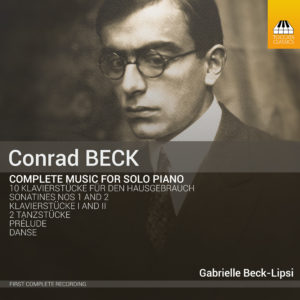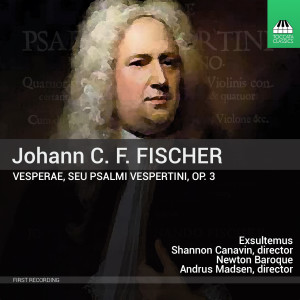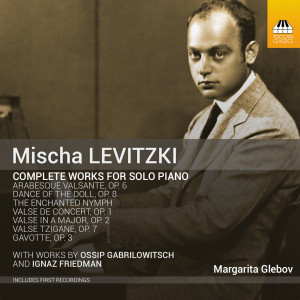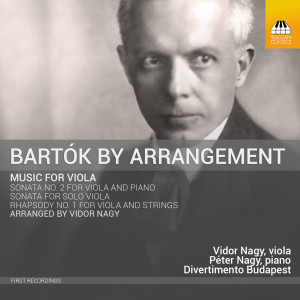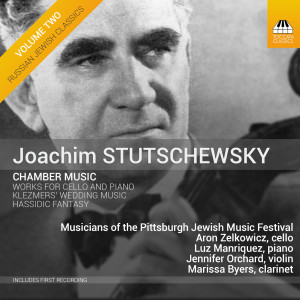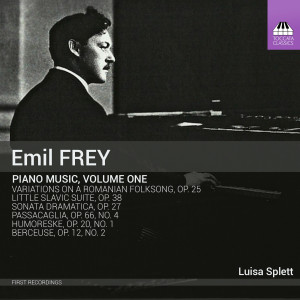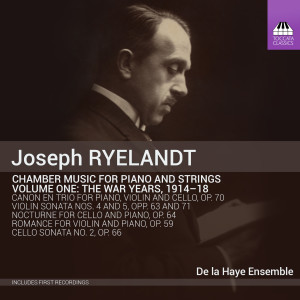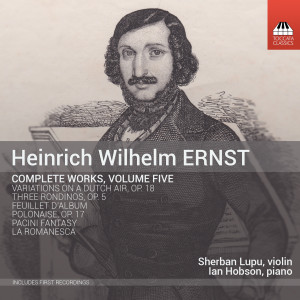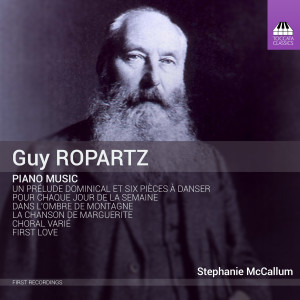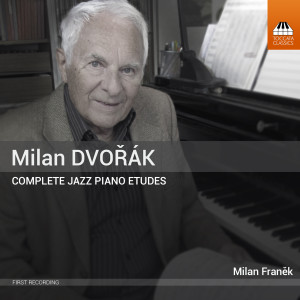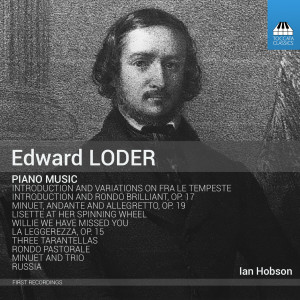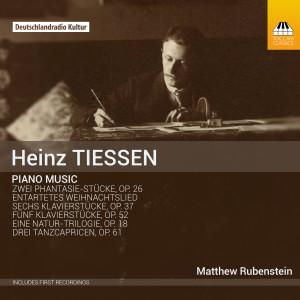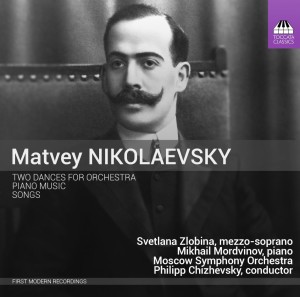Search Results for "Space Wolf: The First Omnibus mp3 torrent" – Page 25
Bernard Rose: Music for Choir and Organ
As conductor, trainer and composer, Bernard Rose (1916–96) was one of the mainstays of English choral music in the second half of the twentieth century. His compositions occupy an honourable place within the mainstream of the cathedral tradition, being both grounded in the past and leaning gently into the future, and speaking its language of stylistic restraint and understated passion – and occasionally flaring into moment of considerable drama. This recording, sung by one of Europe’s leading vocal ensembles and conducted by the composer’s son, makes a good number of his works available for the first time.
Estonian Philharmonic Chamber Choir
Ene Salumäe, organ
Gregory Rose, conductor
Annike Lohmus, soprano
Karolina Kriis, soprano
Marianne Parna, contralto
Raul Mikson, tenor
Rainer Vilu, baritone
Giovanni Maria Nanino: Music for Four, Five and Eight Voices
Giovanni Maria Nanino (1544–1607) was one of the major Italian composers of late-Renaissance polyphony. A successor of Palestrina as maestro di cappella at Santa Maria Maggiore in Rome, Nanino produced a modest but expertly crafted body of sacred music, and his madrigals, too, enjoyed widespread popularity. He also became the most influential teacher of composition in late-sixteenth-century Rome. But despite the prestige he enjoyed in his own day, his music has been almost entirely forgotten. This recording – the first to be dedicated to his music – reveals it to have struck a remarkable balance between beauty, passion and dignity, between darkness and light.
Gruppo Vocale Àrsi & Tèsi
Tony Corradini, director
Théodore Akimenko: Music for Violin and Piano
The Ukrainian Fyodor Akimenko (a.k.a. Fedir Yakymenko, 1876–1945) was born in Kharkiv, studied in St Petersburg with Balakirev, Lyapunov and Rimsky-Korsakov and was Stravinsky’s first teacher. Akimenko’s music has much in common with that of Glazunov and Grechaninov and, like them, in 1923 he chose exile over a prominent teaching career in St Petersburg, finally settling in France in 1929, where he became Théodore and continued his generous output of lyrical, Romantic music.
Tatiana Chulochnikova, violin
Anastasia Dedik, piano
Conrad Beck: Complete Music for Solo Piano
The Swiss composer Conrad Beck (1901–89) wrote a generous amount of music, including seven symphonies, around twenty concertos and concertante works, four string quartets, some large-scale choral works, solo songs and much else, and during his lifetime he enjoyed the strong support of Paul Sacher. But since his death his music has been almost entirely forgotten. This first recording of his complete piano music, recorded by his daughter-in-law, reveals a composer working in a style similar to that of Hindemith and Honegger, with clear contrapuntal textures in a Neo-Classical tradition ultimately derived from Bach – and with a hint of the French accent his music acquired from the years he spent in 1920s Paris.
Gabrielle Beck-Lipsi, piano
Johann Caspar Ferdinand Fischer: Vesperae, Op. 3
In his day Johann Caspar Ferdinand Fischer (1656–1746) was renowned as one of the major musicians in southern Germany, especially for his distinctly French keyboard music. His vocal music, by contrast, which has been far less thoroughly explored, looked to Italy for its models, as his captivating 1701 setting of the Vespers reveals. In keeping with the practice of the time, this first recording of Fischer’s Vespers includes music from elsewhere in his output, as well as two sonatas by the Munich-based Johann Christoph Pez (1664–1716).
Exsultemus
Shannon Canavin, director
Newton Baroque
Andrew Madsen, director, organ
Mischa Levitzki: Complete Works for Solo Piano
With works by OSSIP GABRILOWITSCH and IGNAZ FRIEDMAN
What was called ‘the Golden Age of Pianism’ – the last decades of the nineteenth century and the first of the twentieth – also saw the final flourish of the composer-pianist, a tradition that had begun with Mozart and Beethoven. This recording presents music by three of these last lions. The handful of works left by Mischa Levitzki (1898–1941) are charming miniatures; those by Ossip Gabrilowitsch (1878–1936) are slightly more ambitious; and the compositions of Ignaz Friedman (1882–1948) – both original pieces and transcriptions – point to a substantial body of music that has yet to be fully explored.
Margarita Glebov, pianist
BARTÓK By Arrangement: Music for Viola
Bartók’s chamber music for violin features some of the most important works in the entire repertoire of the instrument. The Hungarian viola virtuoso Vidor Nagy has now transcribed three of them for viola – the Second Violin Sonata of 1922, the Sonata for Solo Violin commissioned by Menuhin in 1943 and the First Rhapsody for Violin and Piano of 1928 – enriching the repertoire of his own instrument with three fiercely challenging works.
Featuring:
Vidor Nagy, viola
Péter Nagy, piano
Divertimento Budapest
Joachim STUTSCHEWSKY: Chamber Music
Joachim Stutschewsky (1891–1982) confronted his identity as a Jewish musician by melding the Mediterranean sounds of his adopted Israel with the early klezmer influences of his youth in Ukraine. He gave his own instrument, the cello, rhapsodic treatment in the explicitly cantorial and folk-infused short pieces on this disc (the first dedicated to his music from a western label), with the piano providing enough harmonic surprises to elevate these simple melodies to sophisticated concert works. The two trios, The Klezmer’s Wedding and Hassidic Fantasy, are expertly arranged suites of nigunim (tunes) and freilachs (joyous dances).
Featuring:
Musicians of the Pittsburgh Jewish Music Festival
Aron Zelkowicz, cello
Luz Manriquez, piano
Jennifer Orchard, violin
Marissa Byers, clarinet
Emil FREY: Piano Music, Volume One
The music of the Swiss pianist-composer Emil Frey (1889–1946) reflects the stages of his career: studies with Fauré, friendship with Enescu, teaching in pre-Revolutionary Russia and mature familiarity with developments back in western Europe. This first survey of his music also reveals a virtuoso’s understanding of the piano and a sense both of drama and of fun.
Luisa Splett, piano
Joseph RYELANDT: Chamber Music For Piano And Strings, Volume One: The War Years, 1914–18
The Belgian composer Joseph Ryelandt (1870–1965) was a humble and reverent man, writing in 1940: ‘If it is God’s will that my works be propagated some day in the future, then it will happen’. Toccata Classics cannot knowingly claim divine intervention as explanation of this first release in a series exploring Ryelandt’s chamber music for piano and strings but offers this entirely unknown but thoroughly attractive repertoire – honest and sincere music downstream from Debussy, d’Indy and Fauré – as evidence of a long life well lived.
De la Haye Ensemble
Heinrich Wilhelm Ernst: Complete Works, Volume Five
Heinrich Wilhelm Ernst (1812–65) was one of the leading musicians of his day, a friend of Berlioz, Chopin, Liszt and Mendelssohn, and for Joseph Joachim ‘the greatest violinist I ever heard’. But the popular encore pieces by which Ernst is remembered today represent only a fraction of his output. This fifth CD – in series of seven presenting all his compositions for the first time – shows his mastery of large- and small-scale forms: the Polonaise de Concert and Variations on the National Anthem are grand and brilliant compositions for the concert hall, while the sparkling operatic miniatures and tender arrangements are altogether more intimate.
Sherban Lupu, violin
Ian Hobson, piano
Guy Ropartz: Piano Music
Guy Ropartz (1864–1955) was one of the unsung heroes of French music, often conducting the music of his contemporaries with his orchestra in Nancy. But Ropartz was a Breton, and his own music is impregnated with echoes of Breton folksong, which combines with the dignified manner inherited from his teacher, César Franck, and the delicate shades of Debussyan Impressionism, to create an atmospheric and attractive style, instantly recognisable as French.
Stephanie McCallum, piano
First recordings
Milan Dvořák: Complete Jazz Piano Etudes
The Jazz Piano Études of the Czech composer Milan Dvořák (b. 1934) developed from transcriptions of popular songs in the early 1960s and soon found an identity of their own. Dvořák’s aim was two-fold: to keep the music within the range of amateur jazz pianists and yet maintain the harmonic, melodic and rhythmic interest of each piece. Small wonder that these sprightly miniatures have been taken up the world around; surprisingly, this is their first recording.
Milan Franěk, piano
Edward Loder: Piano Music
Edward Loder (1809–65), scion of an important family of early-Victorian musicians, had an uneven and ultimately tragic career: he enjoyed brief success as an operatic composer and for a while he could rely on frequent commissions and publication for his songs and piano music. But not only was he briefly imprisoned for debt; he ended his days a pauper, paralysed and forgotten. Yet the best of his piano music – recorded here for the first time – shows a composer alert to developments in the music of Beethoven and Schubert and with a lively sense of invention of his own.
Ian Hobson, piano
Heinz Tiessen: Piano Music
Although Heinz Tiessen (1887–1971) was one of the most prominent composers of the Weimar Republic, his music has largely been lost from sight. This first-ever survey of his most important piano works include Eine Natur-Trilogie, a substantial three-part symphonic poem for piano, and a number of shorter works. Together they show Tiessen’s ability to combine a variety of styles – neo-Baroque counterpoint, Straussian textural opulence, Schoenbergian expressionism and Hindemithian clarity – in a personal language that is generous in its gestures and direct in its appeal.
Matthew Rubenstein, piano
Matvey Nikolaevsky: Songs and Dances
The Roaring Twenties roared in Russia as well as in Europe and America, to an extent generally unsuspected in the west. This CD reveals for the first time the light music of a minor master of the day, Matvey Nikolaevsky (1882–1942), whose songs and dances were hits in the early years of the Soviet Union. His style evolved effortlessly from the salon music of the late nineteenth century to the foxtrots, Charlestons and tangos popular during the relatively liberal New Economic Policy introduced by Lenin in 1921 and which Soviet audiences continued to enjoy after the NEP was abolished by Stalin in 1928.
Svetlana Zlobina, mezzo-soprano; Mikhail Mordinov, piano; Moscow Symphony Orchestra; Philipp Chizhevsky, conductor;
Stay In the Know
JOIN THE TOCCATA NEWSLETTER
"*" indicates required fields
By visiting our site, you agree to our privacy policy regarding cookies, tracking statistics, etc.
